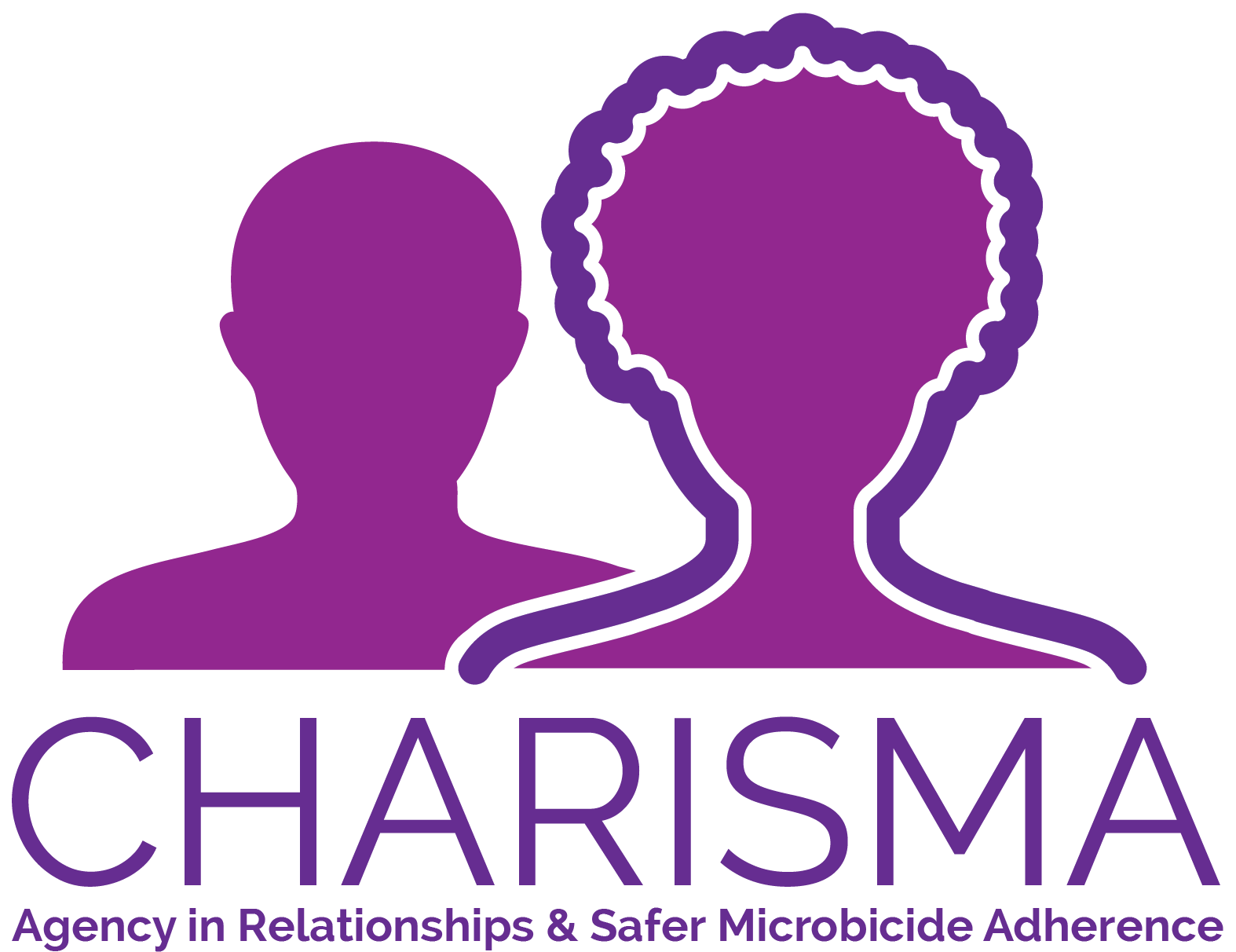CHARISMA supports efforts to: increase women’s agency to safely use ARV-based HIV prevention, to engage male partners in HIV prevention, and to overcome harmful gender norms and reduce intimate partner violence (IPV).
- Landscape and secondary data analysis report finalized.
- Formative data collection and analyses completed.
- Results disseminated.
- Intervention design plan developed and data collection underway.
Landscape and secondary data analysis report finalized. The CHARISMA team completed a summary report of secondary analyses of social harms and male engagement in previous microbicide studies, as well as a landscape analysis of previous interventions aimed at reducing intimate partner violence (IPV) and encouraging male partner support for women’s HIV prevention. The report also included a comprehensive literature review on how women’s agency in and men’s support for HIV prevention have been measured, which was used to develop the Social Benefits-Harms Tool (SBHT). The team will soon be using the SBHT to assess where women are on the continuum of partner involvement/support, thereby allowing the CHARISMA counseling intervention to be tailored to women’s individual circumstances.
Formative data collection and analyses completed. The team completed formative data collection at Wits RHI and subsequent preliminary analyses to inform the CHARISMA intervention. Formative data were collected from ASPIRE (MTN-020) dapivirine ring study participants who reported social harms (SH) or IPV or who had “supportive” male partners during their use of a vaginal ring while in the trial. Data were also collected from male partners of ASPIRE trial participants, which allowed CHARISMA to investigate key issues at the intersection of male partners and microbicide use – ranging from positive support to violence – to inform the CHARISMA intervention design.
Results disseminated. Results were presented at HIV R4P (see Spotlight section for details) and media coverage of the results focused on the finding that participants who experienced IPV or other types of social harm were nearly 1.5 times more likely to report low adherence to the ring and how use of the ring improved after abused women disclosed the events to study staff. The articles stressed the need for simple ways to empower women to be adherent to HIV prevention strategies in the face of potential exposure to IPV. Currently, the team is drafting manuscripts for submission based on additional in-depth analyses.
Intervention design plan developed and data collection underway. The landscape and secondary data analyses, along with the formative data collection detailed above all informed the CHARISMA intervention design. The team developed a four-page brief summarizing the CHARISMA pilot intervention design and the evidence that was used to develop the pilot intervention. Copies of the brief were distributed at HIV R4P, and the team is developing a plan for further dissemination.
CHARISMA received approval from the National Institute of Allergy and Infectious Diseases (NIAID) Division of AIDS (DAIDS) to integrate the clinic-based component of the intervention into the HOPE (MTN-025) open-label dapivirine ring study at the Wits RHI Hillbrow site. Thus far, the team has completed data collection using a field-based survey with 306 women, along with factor analysis, to determine which scale items to use in the SBHT, which will help identify women along a male partner support continuum. CHARISMA staff then developed the final SBHT version for implementation in the CHARISMA component of the HOPE study.
The CHARISMA counseling modules, counselor training manuals, counseling flipchart, and other tools were developed and submitted for ethics approval in early October 2016, and staff training at Wits RHI was completed at the end of September 2016. The CHARISMA team will implement the counseling intervention once ethics approval is received and counselors are certified to use the CHARISMA counseling modules.
Sonke Gender Justice started CHARISMA’s community-based intervention, which aims to reduce intimate partner violence (IPV) and increase men’s awareness, acceptance, and willingness to support their partners’ consistent use of microbicides. Sonke utilized multi-day workshops with male community members to initiate community action teams (CATs) in two locations with the highest proportion of HOPE participants in Johannesburg: Hillbrow and Soweto. The intervention has started involving these teams by holding CAT meetings, community dialogues, tavern dialogues, and door-to-door outreach in the communities.
No Responses
Leave a Reply

